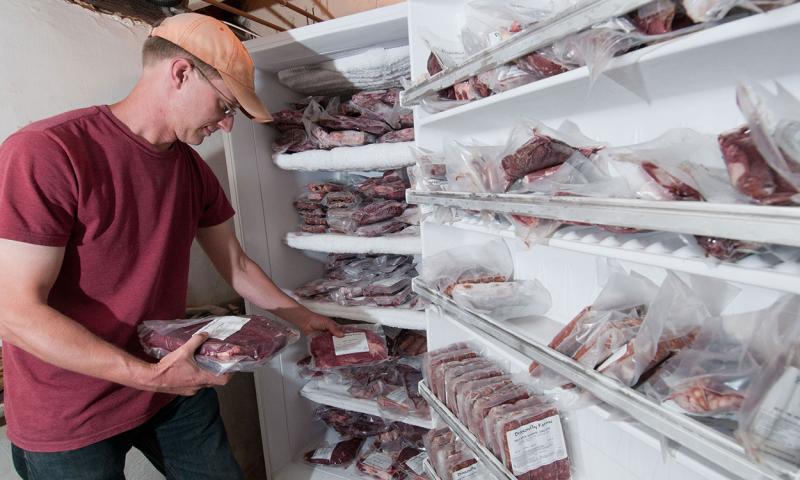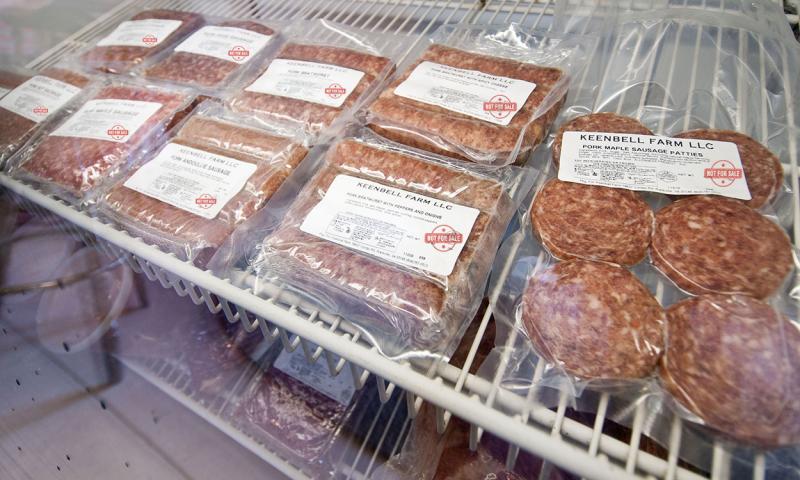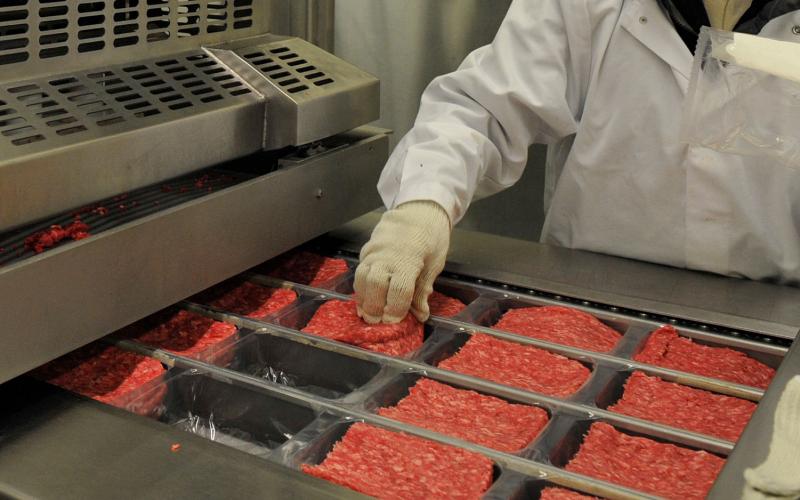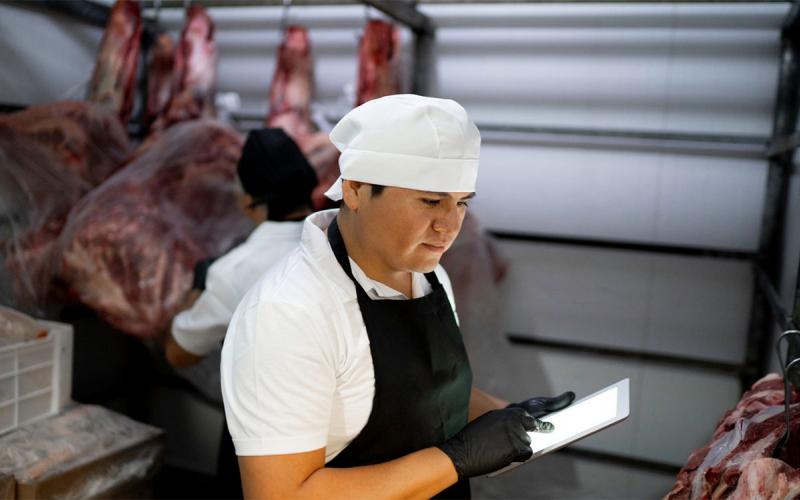
Written collaboratively by Christina Bakker and Dr. Tammy Anderson, South Dakota Animal Industry Board.
I grew up on a cattle farm in southwestern Minnesota. To call beef a staple in our diet is a massive understatement. My mother would leave daily reminders to get out a package of ground beef or a couple packages of steak to thaw when we got home from school. Every time I made the trek to the basement to dig through our chest freezer, I always thought about that stamp that was on every package of our custom-processed beef. It said my dad’s name, what delicious cut of meat was in the paper wrapped package, and then, underneath that, it said in big red block letters “NOT FOR SALE.” I remember thinking, well that’s good that they put that on there, because then they would know not to sell our meat to someone else. I didn’t know it then, but that familiar stamp had nothing to do with reminding the butcher to not accidentally sell our meat.
Custom Exempt vs. Inspected Meat
When it comes to red meat products, there are four types of inspection they can fall under in the state of South Dakota: custom exempt, federal inspection, state inspection and retail exempt. Custom exempt facilities provide a slaughter and processing service where a livestock owner can take their animal and get the meat from their animal back. State or federal inspected facilities have inspectors present during operations, and that meat can be sold to the general public regardless of who owned the animal previously.
How Can You Get Custom Exempt Meat?
Livestock producers have the easiest path to obtaining custom exempt meat. As mentioned before, they take their animals into the locker and get their meat back. Producers can also sell live animals (or halves or quarters) to other people. Those people pay the producer for the live animal and become the new owner. Then, when the animal is taken to the locker, they give their own cut orders, pay for the services provided and get their share of the meat back. That meat can be used for themselves, members of their immediate household or nonpaying guests.

“Not for Sale” Means Not for Sale
Custom exempt meat cannot be donated or sold to others. Over the past few months, the number of advertisements that I have seen on social media for farm-fresh meat has skyrocketed. These posts are usually put in community rummage sale sites or other public forums. Some individuals will post pictures of the packages with “NOT FOR SALE” boldly displayed across the package, and some are more discrete and find ways to hide the stamp. Regardless of their photography skills, the fact that it is illegal to sell the product still exists. While many consumers may see this as a personal choice to purchase the meat, they should know that this doesn’t just impact the buyer and seller. When these posts are found, regulatory officials contact the locker plant, and the butcher gets pulled into the investigation. In a time where local meat processors are already extremely busy and understaffed, dealing with these issues is one of the last things they want to do. For everyone’s sake, do not put them in that position.
So next time you find you are low on meat and want to support local livestock producers, please take the time to make your purchase through the proper channels.
More information on inspection can be found in the article Meat Inspection in South Dakota: Requirements and Resources or at the South Dakota Animal Industry Board website.

